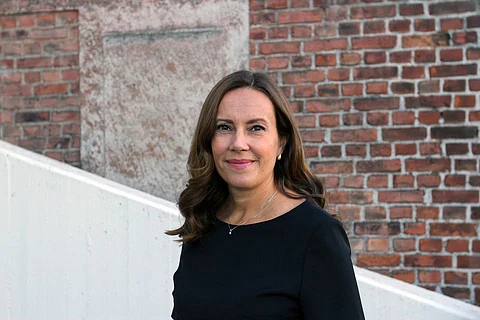

Norwegian Minister of Fisheries and the Oceans Marianne Sivertsen Næss believes that a clearer distinction between fish farming on land and at sea will provide more predictable framework conditions for industry and management.
Photo: NFD
The Norwegian government is lifting a temporary halt on permits for land-based aquaculture, while introducing some changes to the existing regulation to better distinguish between land- and sea-based fish farming.
In an official announcement issued on 1 July, the Ministry of Trade, Industry and Fisheries confirmed that amendments have been made to both the Salmon Allocation Regulation and the Aquaculture Biosecurity Regulation.
According to the Ministry, the revisions aim to clarify the criteria for determining whether a facility is located on land or at sea. The changes also introduce a requirement for disinfection of intake water at land-based aquaculture sites, which officials argue will help reduce the risk of spreading pathogens via water.
Norway's Fisheries and Oceans Minister Marianne Sivertsen Næss stated that clearer distinctions between land- and sea-based fish farming operations would provide “more predictable regulatory conditions for the sector and regulators”.
"The government wants to facilitate the sustainable development of land-based fish farming. There has been significant technological advancement since the current regulations were introduced, making changes necessary," Sivertsen Næss said in a Norwegian language statement.
"A clearer distinction between land and sea farming will provide more predictability for the sector and regulators," she stated.
The Ministry claims the revised rules will streamline the application process and reduce the risk of unequal treatment among applicants. It also argues that the new water treatment requirements will benefit nearby marine environments and existing sea-based operators located close to land-based facilities.
“Requirements for intake water treatment are necessary to reduce the risk of spreading pathogens to sea-based facilities and to ensure good biosecurity at land-based sites. This will benefit existing operators in nearby coastal areas as well as the marine environment,” Sivertsen Næss added.
The changes follow a public consultation, during which the Ministry received nearly 50 responses, with adjustments made to the final regulations based on this feedback.
The new requirements will apply only to new facilities, with existing land-based fish farms exempt unless they undergo what the Ministry defines as “significant modifications”. A guide outlining what qualifies as a significant change is being developed by the Norwegian Food Safety Authority, Mattilsynet, the Ministry said.
The move marks the end of a temporary freeze on applications for land-based aquaculture permits for salmon, trout and rainbow trout, which had been in place since December 2022. Norwegian government officials explained that the pause was introduced due to concerns that some operations categorised as land-based were, in practice, having an environmental and biosecurity impact comparable to traditional open-net sea pens, yet were being granted licences without fees.
Officials also noted that facilities lacking adequate water treatment posed similar disease and environmental risks to surrounding marine farms.
Following the consultation process, the Ministry clarified that the new intake water disinfection requirement for freshwater systems will apply only to facilities sourcing water from areas with migrating anadromous fish or other potential sources of infection.
The news on Norway's updated land-based aquaculture regulations follows the Storting's vote approving aquaculture regulatory reform on 12 June, which will see new regulations come into force within 2-4 years.
At the end of June, the Norwegian government published a separate proposal for offshore aquaculture development in the country, and are inviting feedback via a public consultation which will run until 17 September.
"Offshore aquaculture is a major opportunity for sustainable food production in Norwegian marine areas, and it requires substantial regulatory development to support it," Sivertsen Næss stated, announcing the consultation in June.
